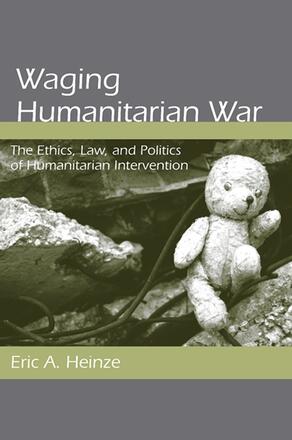
Waging Humanitarian War
The Ethics, Law, and Politics of Humanitarian Intervention
Alternative formats available from:
Examines the ethical, legal, and political dimensions of military intervention for humanitarian reasons.
Description
How severe must human suffering be before military intervention is considered? Can there be commensurate legal grounding for such an argument? Which actors are the most appropriate agents of intervention? In this reasonable and straightforward approach to the perplexing issue of humanitarian intervention, Eric A. Heinze incorporates insights from various strands of ethical, legal, and international relations theory. He identifies the conditions under which humanitarian intervention is morally permissible, establishes the extent to which such an ethical argument can be grounded in international law, and determines which actors are best equipped to undertake this task under prevailing political conditions. Heinze presents the reader with a number of empirical examples, including the 1999 Kosovo intervention, the 2003 Iraq war, and the ongoing humanitarian crisis in Darfur, Sudan. The result is a more theoretically consistent—and therefore more practically workable—approach to humanitarian intervention.
Eric A. Heinze is Assistant Professor of Political Science and International Studies at the University of Oklahoma.
Reviews
"…Heinze's arguments are carefully constructed and systematically presented. The criteria he presents for determining the acceptability of humanitarian intervention provide a useful set of standards that integrate moral, legal, and political perspectives. His may be the first attempt to mesh all three fields into a coherent structure for judging the appropriateness of intervention. " — Parameters
"Waging Humanitarian War is ambitious, occasionally provocative and insightful, and ultimately a welcome addition to the existing literature. " — H-Net Reviews (H-Diplo)
"Waging Humanitarian War is one of the first major monographs on the ethics and politics of humanitarian intervention in light of the R2P doctrine and has much of interest to say on the topic. " — Human Rights & Human Welfare